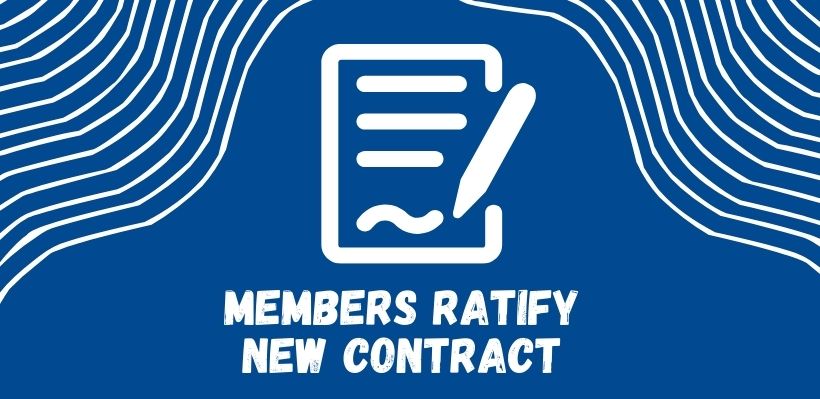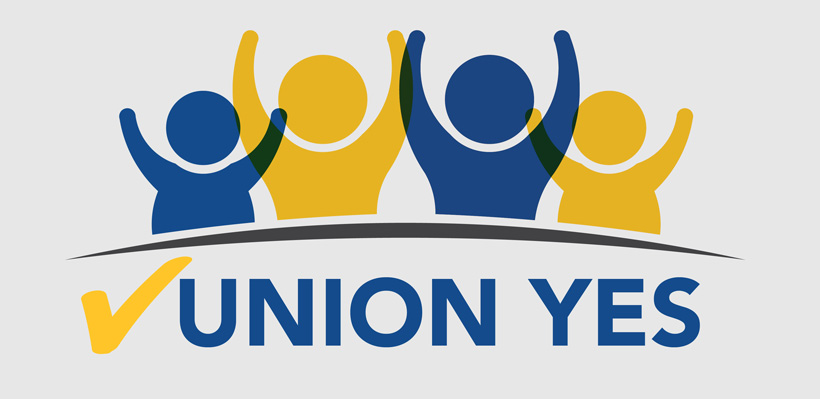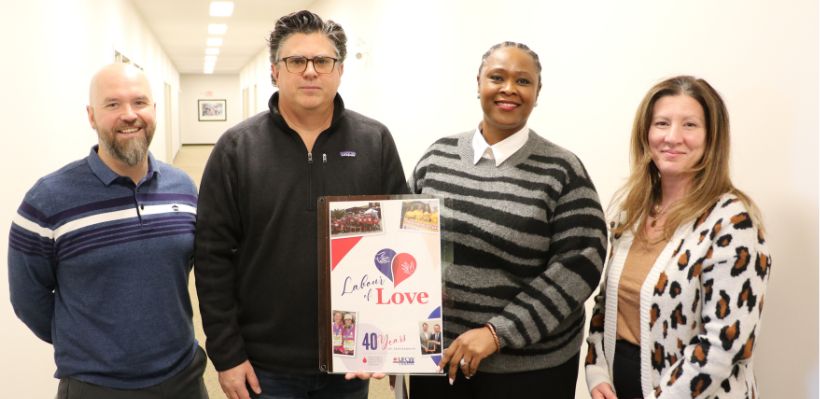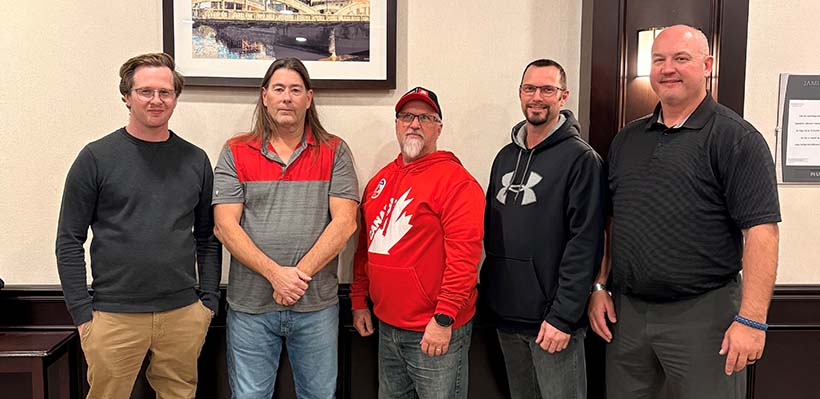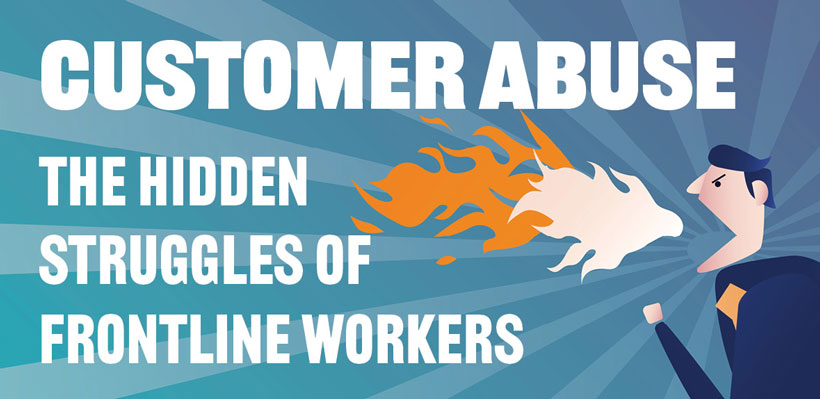
As a grocery worker, Mike Ness is no stranger to experiencing and seeing all types of customer abuse at his Ottawa-area store. He has witnessed customers resort to name calling, using slurs, pointing fingers and sometimes, even shoving workers.
“I support our members by reminding them the customers have no right to abuse them,” said Ness.
Members working at Loblaw banner stores say they often become the target of customers, who are angry at Chairman Galen Weston or the company about high food prices, lack of staff or product availability. Many frontline workers, instead of being recognized for their hard work, are on the receiving end of public abuse and are facing increasing incidents of violence, threats and harassment. For equity seeking groups, the abuse can be extreme and targeted, with members facing personal attacks, including sexist and racist abuse.
Natasha Grey, a cashier working on the frontlines at a grocery store in Toronto, has experienced devastating customer abuse.
“I had a woman call me the “N” word,” she said. “I have been judged because of my weight and it makes me sad sometimes because as much as I am a tough cookie, words do hurt and it made me feel that there is no humanity left.”
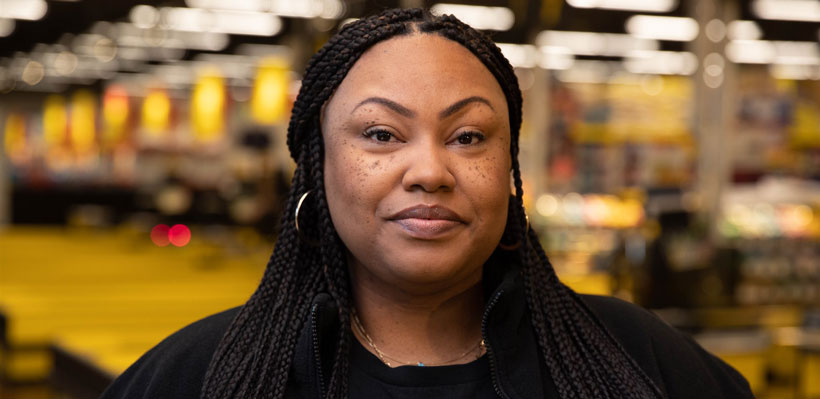
The abuse can be wide-ranging from customers throwing things to threatening to come after workers.
“I have seen verbal and physical abuse from customers,” said Marc Visca, who works at a grocery store in Toronto. “With these incidents, the most effective thing members can do is to remove themselves from the situation if it has already started and if unable, try to get a hold of a manager for support.”
During recent Loblaws Great Food and Real Canadian Superstore contract negotiations, Local 1006A pressed the company and achieved new union contract language to further protect members from customer abuse. It reads as follows: The Company will place visible signage reminding the customer of its “Zero Tolerance Policy.”
In the union’s pre-negotiations survey, an astounding 40 per cent of members reported experiencing or witnessing customer abuse regularly – 13 per cent responded they were exposed to abuse “almost every shift.” In an April survey of our members, 55 per cent reported having faced inappropriate customer abuse or behaviour in recent months.
“The reality is customer abuse continues to be a serious problem for members working on the frontlines – The abuse must stop," said President Wayne Hanley. "All workers deserve to be treated with respect and dignity.”
Implementing the new contract language has been challenging. The union has pressed Loblaw on this issue multiple times. 1006A is working with the company to ensure the signs are prominently placed at various service points as intended.
If the notices are posted in areas that are not visible to customers, it’s the union’s position that the company is in violation of the language. The union filed a grievance, referred it to arbitration and is pursuing all avenues to ensure our members are protected and the language in the contract is honoured.
UFCW 1006A is dedicated to raising awareness among the membership and the public about the struggles that frontline workers face.
“Customer abuse is a growing reality faced by too many of our members across all of our public facing industries and many employers are slow to respond,” said Rick Young, 1006A Health and Safety Advocate. “Customer abuse can encompass verbal, emotional, or even physical misconduct directed at our members.”
Young said workers have faced abuse, which has ranged from unwarranted yelling, profanity, manipulation, threats and online harassment. This, in turn, can lead to not only short term but long-term emotional stress.
“It won’t come as a surprise to anyone that the pandemic, the rising cost of groceries, the cost of housing and the chronic under funding of social services has exacerbated the issue,” said Young.
.jpeg)
As for Ness, he wants to remind the public that workers are doing their best despite increasingly challenging work duties and responsibilities.
“I’d like to thank all the good customers – all the people who say nice things and show us respect,” Ness said. “It’s hard to work with the public and hard to be in the service industry – a little kindness goes way further than you think.”
How to Handle Customer Abuse at Work
When customer abuse occurs, you may experience feelings of shock and sadness. It’s important to remember it’s not your fault.
1) If you believe your safety is at risk, step away immediately and inform management that you are initiating your “right to refuse.”
2) Remind yourself that you are doing your best and that you don’t deserve to be treated this way. Customer abuse is never acceptable.
3) Follow your company’s policies and programs for dealing with abusive customers. This may include letting the customer know you are contacting a manager or supervisor to resolve the situation and removing yourself from the situation.
4) Inform your union steward and the worker member of your Joint Health and Safety Committee so that they can discuss the matter with your employer. This will help determine the need for a new risk assessment or amendments to the workplace harassment and violence prevention policy and programs.
5) Practice self-care with breathing exercises, relaxing, meditating or exercising. Seek professional help or support if you feel overwhelmed, depressed, or traumatized. It may be helpful to talk about the experience with friends and co-workers.
Employer’s Responsibility
Under Ontario law, your employer is responsible for a workplace harassment and violence prevention policy. They also must have an implementation program.
The policy can be created or modified through collaboration with the Joint Health and Safety Committee representatives.
Legally, risk assessments must be done annually or as often as required. Employers should identify potential areas or situations where employees may face abuse from customers and implement measures to mitigate these risks. Employers should also train members on managing difficult or abusive customers. If you feel your employer is not taking their responsibilities seriously, contact your Union Representative.



